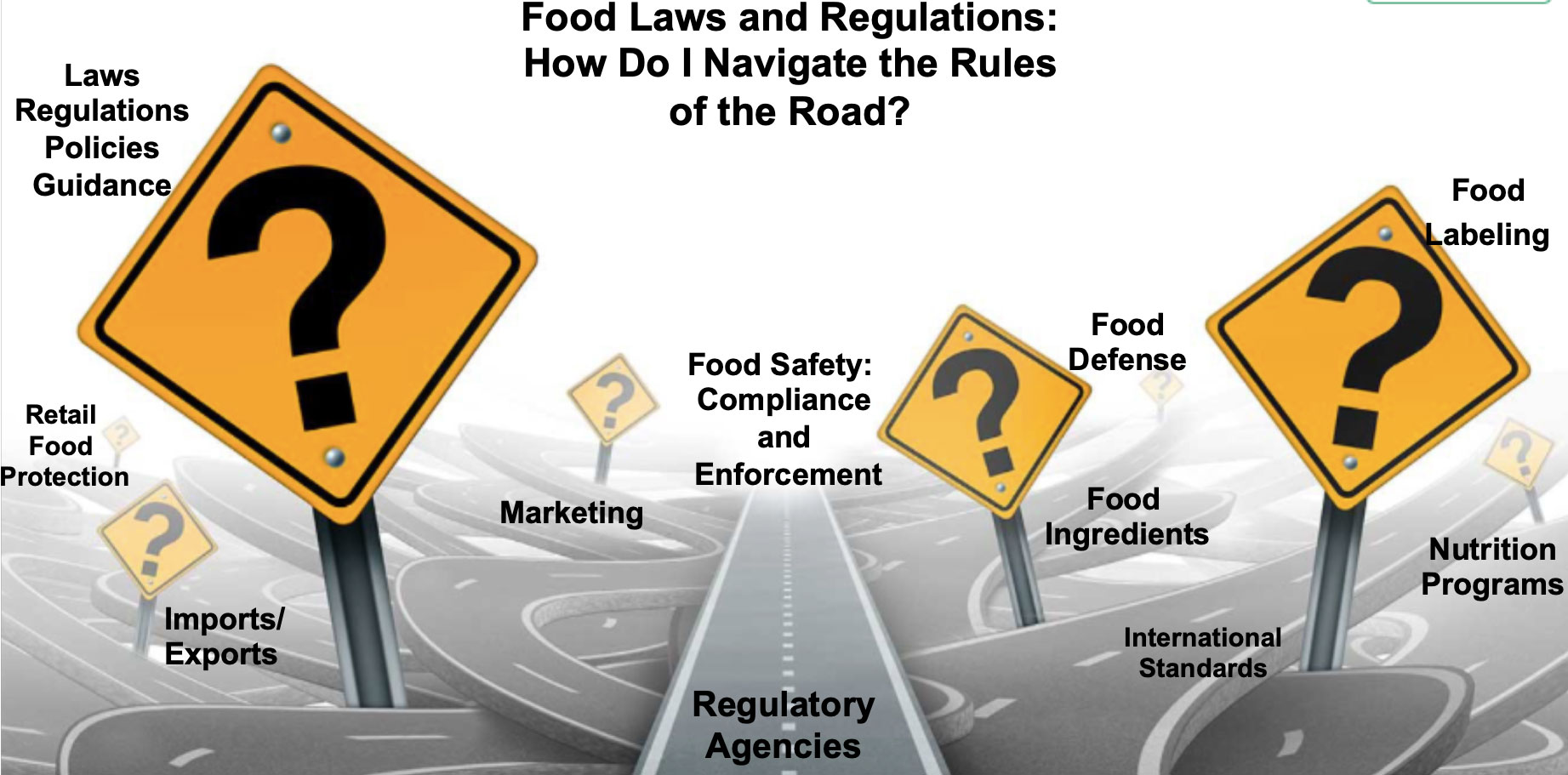
24 May Food Laws and Regulations: The Rules of the Road Every Food Sector Professional Should Know
As a long-time food sector professional and food studies professor, I hold great value in researching and understanding the evolution of food production and food and nutrition policies. I recently instructed IFT’s short course — Food Laws, a Practical Roadmap — and just finished a semester teaching Food Science Issues and Food Laws at Rutgers University in the Food Science Department. I will soon teach a two-day short course, IFT’s Food Labeling for Foods Marketed in the US, at its annual meeting in New Orleans, LA, for the twenty-fifth time.
Throughout my courses, my goal is to evoke important perspectives on food and nutrition laws/regulations of today. I reflect on the evolution of food production and food systems, food ingredients, public health issues, and changing consumer values within the marketplace. As I continue to teach my students, I am increasingly concerned that more members of the food and health sectors need to have a working knowledge of the rules that affect what goes into food products and how they can be marketed.
Food laws and regulations are the rules of the road for manufacturers, as well as the test criteria for truthfulness that food policymakers, advocates, and the media use today. Understanding food laws and regulations as a practical roadmap is essential for anyone working in food, nutrition, health, and wellness professions.
Some important applications for enhancing our fundamental knowledge of food laws and regulations include preparing food labeling and understanding the impact of labeling on consumers. There is an immense need for consumer education in today’s food industry.
Knowing the ins and outs of food laws and regulations will help manufacturers create their own food philosophy, while still understanding the necessary guidelines and guideposts for any new product development, ingredient sourcing, and process innovation. Any professional in scientific and regulatory affairs should have a working understanding of how and why food laws/regulations are made, the requirements that affect their businesses, and how to properly engage in the process.
Education is also imperative for professionals in the food, nutrition, and health affairs area that deal with research and health advocacy organizations. In order to advocate for informed, impactful changes in food policies, a solid level of education must first be established.
With 25-plus years of experience in leading scientific and regulatory affairs, FoodTrition Solutions is prepared to give customized training and help strategize on how to navigate today’s regulatory and legislative landscapes, so you and your organization get where you intend to go without bumps or detours on the road to success.

Sorry, the comment form is closed at this time.